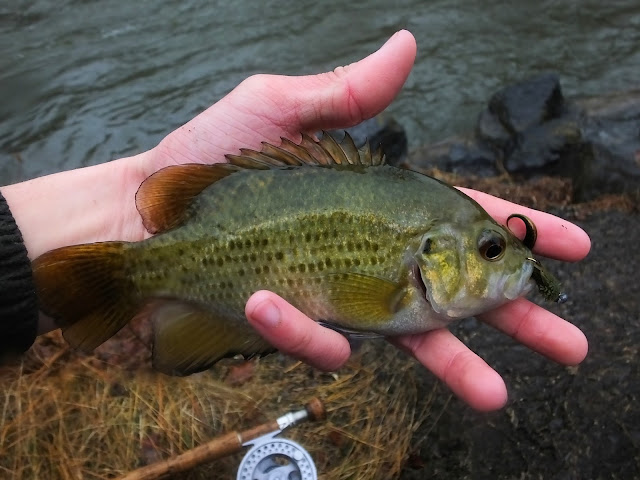 |
| No enhancement. This is what it was really like. |
I changed to a streamer and worked down, catching one small fish and getting another that came in fouled. I don't take photos of snagged fish even if they are as nice looking as that one was!
I then crossed a bridge and walked down to a place where clear water was dumping into the creek. Initially all I saw were suckers. Big ones. But after a bit of spot and stalk I found a big hatchery escapee rainbow feeding actively. I tied on a pink Frenchie, added a split shot, and started to work the fish, which was sitting in a very inconvenient spot as far as current goes. It may have taken at on point but I couldn't see my fly or feel anything so I was basing my hook set entirely on what I saw the fish do. I kept making the best drifts I could, focusing right on that rainbow's head, when I got distracted by some motion just next to the bow. There was a big brown that I hadn't even seen, white mouth open wide and head shaking angrily. Now, what I should have done was lightly lift the rod and proceed to carefully fight the fish. What I did was make an aggressive downstream hook set and break the fish off. That really was a good fish. Not huge, but big enough to be impressive. And it would have been a heck of a sight-nymphed trout. But now, what I really have is a looming image of the fish that could have been and a big reason to get myself back to Spring Creek very soon.

















































